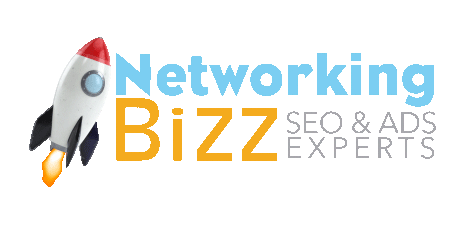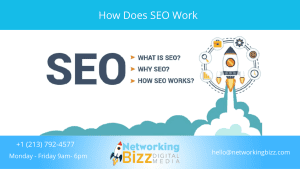At the end of 2014, a number of studies were released by the advertising and marketing industry showing that social media marketing and advertising was the most effective form of online paid advertising.
Overall impressions increased, click and conversion rates increased, and overall prices for successful marketing campaigns dropped, providing small and large businesses with an opportunity to build through social media advertising faster than they would have been able to through search engine marketing and paid advertising.
These 2014 studies posited that social media marketing and advertising budgets would increase exponentially over the next five or six years, and today we now understand that most businesses with an active online advertising presence spend close to 30% of their marketing budget on social media marketing alone.
Google has definitely noticed a change in the online advertising tides and have been looking for ways to respond. Google AdWords used to be the “only game in town” when it came to truly effective and widespread online advertising campaigns, but today nothing could be further from the truth. Facebook Advertising alone has carved a significant chunk of the market away from Google, and they continue to make significant inroads on an almost daily basis.
Trying to determine whether or not Facebook Advertising is more effective than advertising with Google AdWords is a bit of a tough task, however. No campaigns are created equally, no marketing efforts are exactly the same, and while both platforms provide small and large businesses with tremendous reach in tremendous leverage neither of them do so in exactly the same way.
Here are some inside insights to help you better understand exactly what both Facebook Advertising and Google AdWords have to offer and which of these two major online advertising platforms you should be allocating a significant portion of your online marketing funds.
Highlighting the benefits and drawbacks of Google AdWords
Right out of the gate, Google AdWords enjoys a fantastic reputation amongst large and small businesses simply because it used to be the only game in town it used to be the only way to effectively reach everyone and anyone in your market utilizing a search engine to find the products and services they were most interested in.
Today, they obviously aren’t the only platform that offers online advertising opportunities, but they are still one of the gold standard platforms, still have a tremendous amount of reach, and while competition has definitely begun to heat up – and has driven the cost of advertising on Google AdWords up significantly – this is still where a lot of people focus the bulk of their online advertising budget.
On the pros side of things, Google AdWords still offers the most detailed measuring and optimization tools available for each and every single one of the campaigns you run on the platform. The reach available through Google is much larger than the reach possible through Facebook Advertising, and the ability to generate an immediate flood of targeted traffic is really simple and straightforward when you use this platform.
It certainly doesn’t hurt that you maintain complete control over your daily advertising budget and the maximum amount of money you are willing to spend per click, and it’s nice to know that you are able to get an instant return on your investment so long as your marketing and advertising funnels and campaigns are well-designed. The targeting options available through the Google AdWords platform are robust, though not quite as specific or as laser targeted as those you can generate on Facebook Advertising.
On the flip side of things, there are some drawbacks to this platform. If your Google AdWords campaign isn’t set up correctly you can lose your shirt in a hurry, and getting your first few AdWords campaigns up and running can be a bit of a headache and hassle. You’ll only have a very limited amount of space to create your advertisement, and unless you are using other Google partner platforms – like Google Shopping and YouTube Advertising – you won’t be able to use images or videos to sell your products or your services.
The competition here is as cutthroat as it gets which can drive the price of lucrative market keywords and clicks right through the roof.
Highlighting the benefits and drawbacks of Facebook Advertising
While the Facebook Advertising tracking and optimization campaign tools aren’t quite as robust as the Google tools, they are still some of the best in the business. You’ll have complete control over your daily advertising budget and your maximum CPC prices, and generating an immediate flood of targeted traffic – truly laser targeted traffic – is second to none.
The laser targeting available through Facebook Advertising is where this platform really starts to shine. You’ll have the option to according to a variety of different factors, breaking each of your market segment lists down by the kinds of demographics that Google AdWords never makes available.
Facebook Advertising also happens to be about as easy to set up as it possibly gets. You won’t have to worry about any headache or hassle setting up your very first campaign, and as of right now the CPC prices on even the most competitive industries are still pretty reasonable.
Drawbacks definitely exist on the Facebook Advertising platform, however. For starters, this advertising platform is really only suited to consumer style products and services. The business market and true business to business sales really isn’t all that viable on Facebook (there are other social media platforms like LinkedIn that work much better), and it’s impossible to target your ads to certain times within the day or certain days within the week unless you choose to go forward with a lifetime style budget.
Getting the chance to use video and imagery in your Facebook advertisements is always a big bonus, however, and because Facebook Advertising offers the same kind of reach and increased simplicity of establishing campaigns it’s easy to see why so many people are making the switch to this platform.
Our recommendation would be to try both of them out, giving them equal budgets, and determining which one makes the most sense for your specific needs your specific campaigns, and your specific goals.



